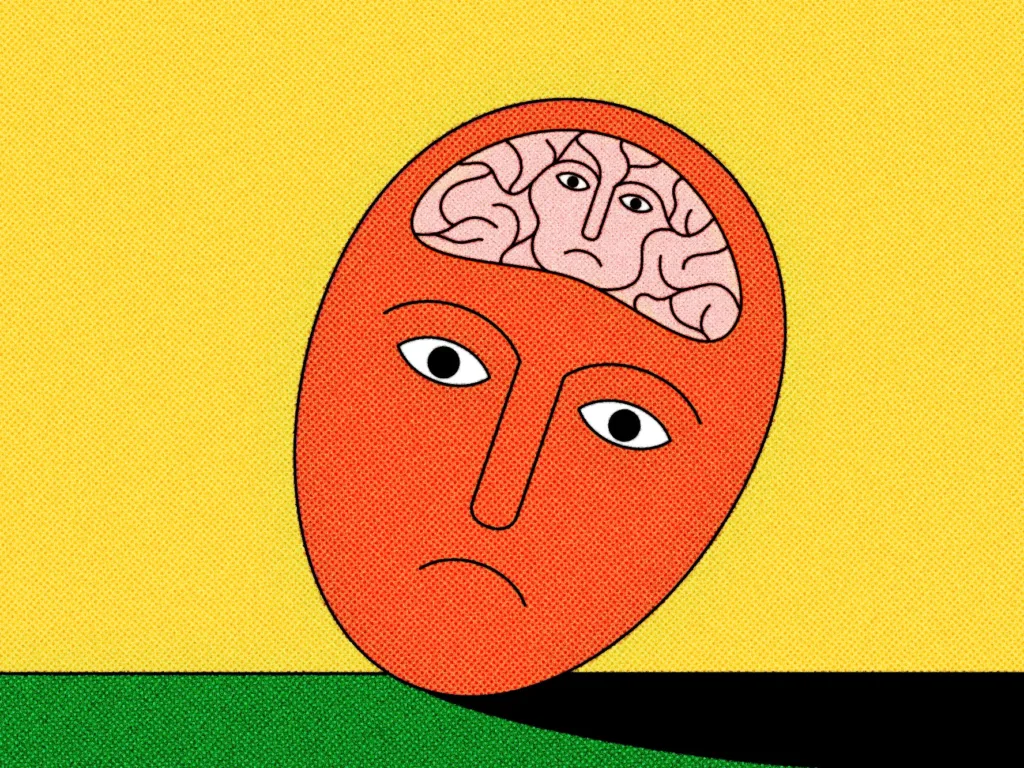Individuals with a pessimistic explanatory style tend to view negative events or situations as being stable, global, and internal in nature. They tend to blame temselves for negative outcomes and believe that the causes of these outcomes are permanent and pervasive. This type of thinking can lead to feelings of helplessness and hopelessness, which can in turn lead to depression and anxiety.
For example, if someone with a pessimistic explanatory style fails a test, they may think to themselves, “I am a failure at everything,” or “I will never be good at this subject.” They may view this failure as a reflection of their overall abilities and believe that they will continue to fail in the future.
On the other hand, individuals with an optimistic explanatory style tend to view negative events as being caused by external factors that are temporary and specific in nature. They do not blame themselves for negative outcomes and believe that these outcomes are not indicative of their overall abilities or potential. This type of thinking can lead to feelings of empowerment and resilience, which can help individuals bounce back from setbacks.
For example, if someone with an optimistic explanatory style fails a test, they may think to themselves, “I didn’t study enough for this test,” or “I can do better next time if I put in more effort.” They may view this failure as a temporary setback that can be overcome with hard work and perseverance.
It is important to note that a person’s explanatory style can be influenced by a variety of factors, including genetics, upbringing, and life experiences. However, it is also possible to change one’s explanatory style through cognitive-behavioral therapy and other interventions.
Individuals with a pessimistic explanatory style tend to view negative events as being caused by stable, global, and internal factors, which can lead to feelings of helplessness and hopelessness. On the other hand, individuals with an optimistic explanatory style tend to view negative events as being caused by temporary and specific factors, which can lead to feelings of empowerment and resilience. It is important to recognize one’s explanatory style and work to change it if it is causing distress or hindering personal growth.
The Characteristics of a Pessimistic Explanatory Style
A pessimistic explanatory style is a way of explaining events or situations that tend to focus on negative outcomes. This style of thinking is characterized by three main components: stability, globality, and internality. When people with a pessimistic explanatory style experience negative events, they tend to explain them as stable (i.e., unlikely to change), global (i.e., affecting many areas of their lives), and internal (i.e., caused by something about themselves).
For example, if someone with a pessimistic explanatory style fails a test, they might explain it as a sign that they are not smart (internal), that they are bad at all tests (global), and that they will never be able to improve (stable). This type of thinking can be harmful beause it can lead to feelings of helplessness and hopelessness.
On the other hand, people with a more optimistic explanatory style tend to explain negative events as temporary, specific, and external. They might see a test failure as a sign that they need to study harder (specific), that they had a bad day (temporary), or that the test was particularly difficult (external). This type of thinking can be more helpful because it allows people to see that negative events are not necessarily permanent or reflective of their abilities.
A pessimistic explanatory style is a way of thinking that tends to focus on negative outcomes and can lead to feelings of hopelessness and helplessness. It is important to recognize this type of thinking and work to develop a more optimistic explanatory style to promote resilience and well-being.

The Impact of Optimistic and Pessimistic Explanatory Styles on Behavior
An individual’s explanatory style can significantly impact their behavior. People with a pessimistic explanatory style tend to view setbacks as personal, permanent, and pervasive, whih can lead to a sense of helplessness and a belief that nothing can be done to improve the situation. This may lead to a lack of motivation, a decrease in effort, and a tendency to give up easily.
On the other hand, individuals with an optimistic explanatory style tend to blame setbacks on external factors and view them as temporary, isolated events. This outlook can lead to a sense of control over the situation and a belief that one can take action to overcome the setback. As a result, individuals with an optimistic explanatory style are more likely to persevere in the face of adversity, remain motivated, and maintain a positive attitude.
An individual’s explanatory style can influence their behavior by shaping their beliefs about the causes of events and their ability to control them. By adopting an optimistic explanatory style, individuals can improve their resilience, motivation, and overall well-being.
Conclusion
Individuals vary in their explanatory styles, with some beig more pessimistic and others being more optimistic. A pessimistic explanatory style can lead to a tendency to view setbacks as personal, permanent, and pervasive, while an optimistic explanatory style can lead to a tendency to view setbacks as temporary, isolated events. It is important for individuals to be aware of their own explanatory style and to work towards cultivating a more optimistic outlook. This can involve practicing gratitude, focusing on solutions rather than problems, and seeking social support when facing challenges. Ultimately, individuals have the power to shape their own perspectives and attitudes towards life’s ups and downs.
